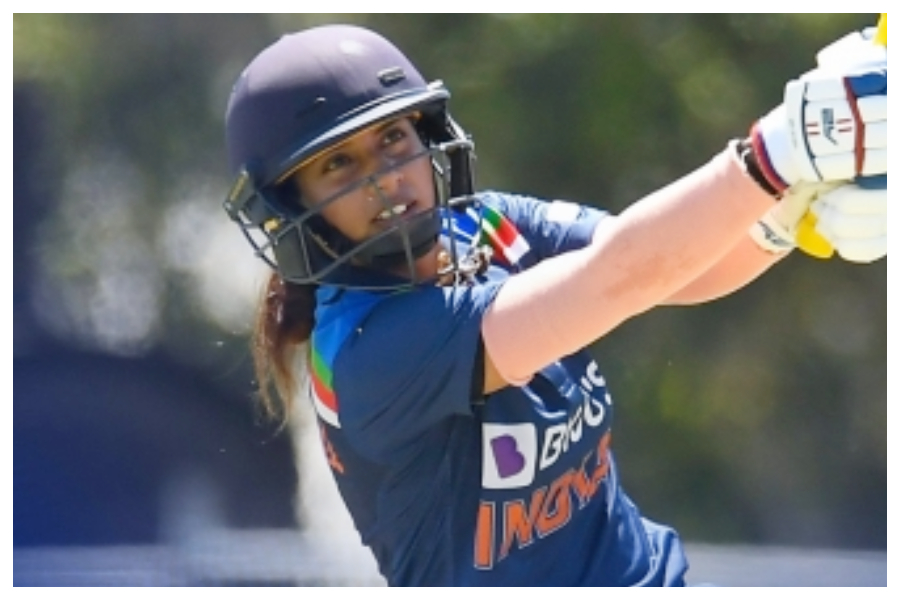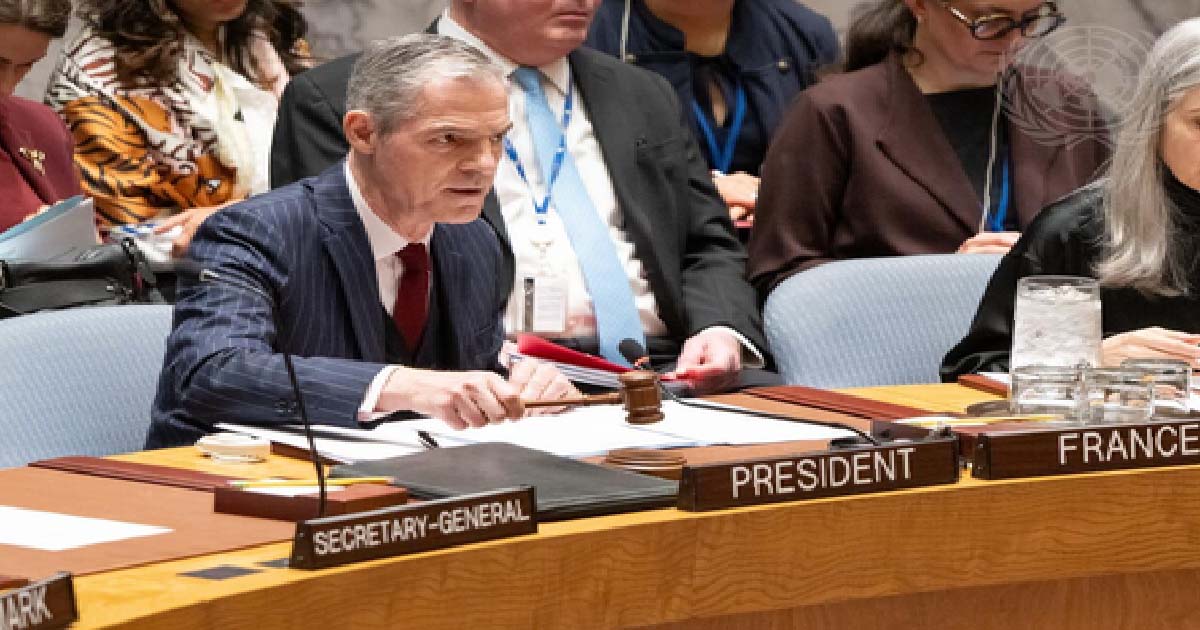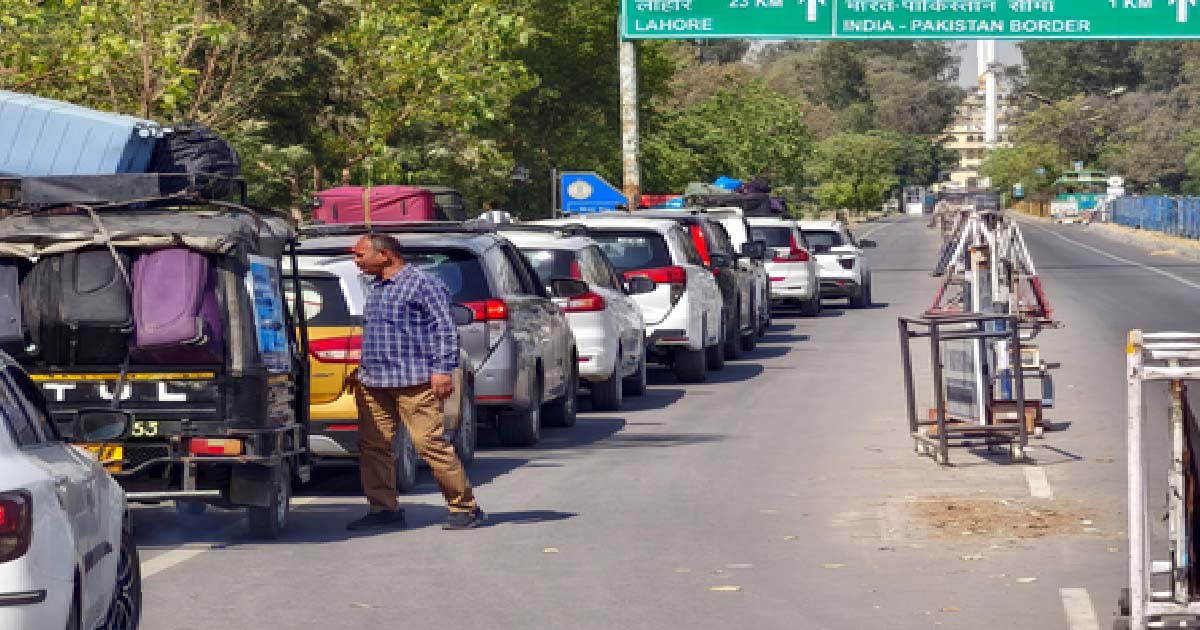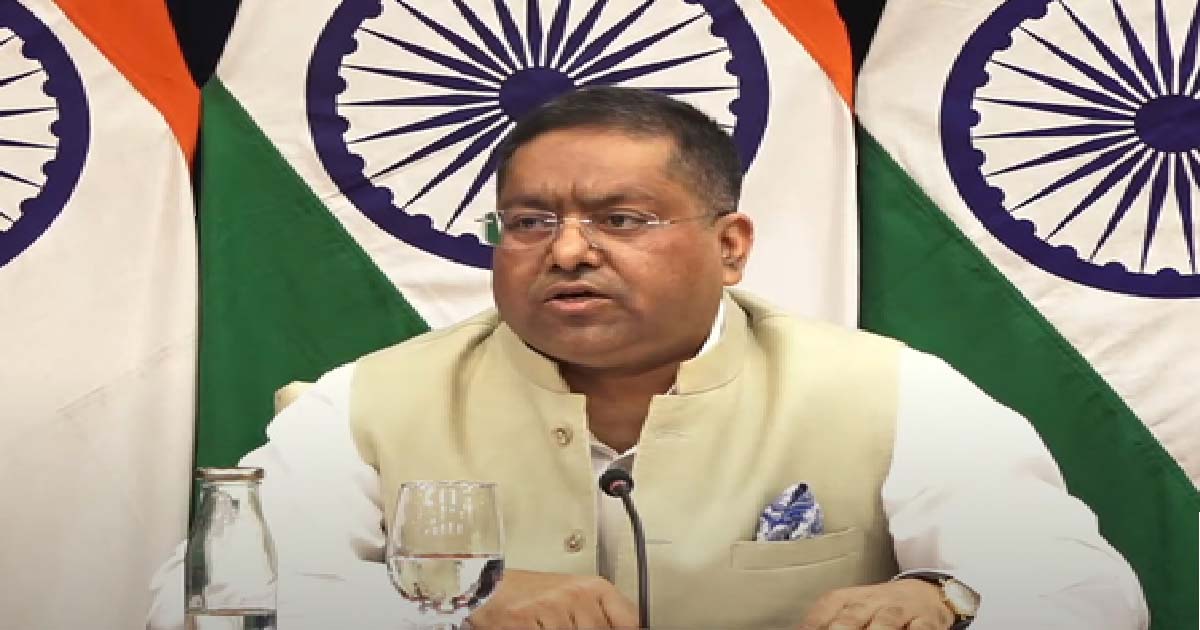International
India more than capable of winning Women’s World Cup: Mithali Raj

India women’s cricket team captain Mithali Raj has said that her side is “more than capable” of winning the ICC Women’s Cricket World Cup, beginning in New Zealand on March 4, adding that it is now “just a case of doing it” after coming close on two occasions.
India begin their campaign in the mega event, to be played across six venues in New Zealand from March 4, with a game against arch-rivals Pakistan on March 6.
Mithali said the impact India’s title victory in the mega event will have on the country will be “incredible”.
“We have shown that we are more than capable of winning the trophy, it is now just a case of doing it and the impact of doing so would be incredible. I can only imagine what its effect would be,” Mithali said in her column for ICC.
“I clearly remember the emotions from the final of the ICC Women’s Cricket World Cup in 2017, having come so close to winning. The match against England was played in a packed Lord’s stadium and to miss out on that chance is something that will rankle forever,” added the skipper.
After defeating six-time champions Australia in the semifinals, India made it to the 2017 World Cup final, where they lost to hosts England.
“It has been an honour to have led India to two of the three ICC finals we have reached, going back to the ICC Women’s Cricket World Cup 2005 in South Africa. We have had several memorable performances over this period but are missing that one huge win.
“We have now been the beaten finalists in the most recent 50-over and 20-over World Cup finals and have learnt so much from those experiences that we will take into this World Cup in New Zealand,” said Mithali.
She said a title triumph in New Zealand could speed up BCCI’s plans to organise a women’s IPL.
“Not only would it mean so much for the players and our families, but it would make a real difference for all our fans back home in India, where there is already great anticipation for a Women’s IPL. Our fans are some of the most passionate in the world and we know that they will be watching on. I’m sure if we did win, we would be able to hear them all the way from New Zealand.
“To be recognised on the streets in my country is something I never expected when I appeared in my first World Cup in 2000, also in New Zealand, but that is now so common and shows how much the game has grown in India.”
Mithali said that she and pace-bowling stalwart Jhulan Goswami, who too was part of the 2005 campaign, “badly want to win an ICC World title”.
“Jhulan Goswami was by my side in 2005 and has been an ever-present member of the Indian team in all those years since, she has amassed 240 wickets in ODIs, 60 more than anyone else and luckily shows no signs of slowing down. We both so badly want to win an ICC World title before we call it a day!
“We have, of course, been joined by so many talented youngsters in recent years. There is huge talent in India and I am sure the next crop of players is already inspiring thousands and thousands of girls out there to pick up the bat or ball. When I was growing up, there was only the odd girl attending an academy but bunches of them are the norm nowadays,” said Mithali.
“Shafali Verma is surely one of the players being watched with great enthusiasm back home. She is one of the world’s rising stars and I am backing her to have more impressive performances for India throughout the tournament with guidance and support from the stylish Smriti Mandhana at the other end. Taniya Bhatia has been very reliable behind the stumps and Richa Ghosh is hot on her heels, meaning we have two wicketkeepers we can trust,” said Mithali in her column.
“We all know what Harmanpreet Kaur can do on the world stage. Her 171 not out in the 2017 semifinal against Australia earned us a place in the final and her performances in last year’s Women’s Big Bash League show she is ready to do it again. We are very fortunate to be heading into this tournament having played New Zealand, Australia and England in recent months.”
The skipper said that the squad was well acclimatised to the New Zealand climate after having played on their seaming pitches, which they don’t get at home.
“The series in New Zealand has given us a chance to acclimatise, particularly to the seaming conditions we don’t often experience at home. Against England, we won one of the three ODI matches and put up a good fight in the other two before beating Australia to end their run of 26 one-day wins. Those results show what is possible if we come together as a team and believe in ourselves, and now, I am just excited to get out there and play.”
International
UNSC asks all countries to cooperate in bringing Pahalgam terrorists, backers to justice

United Nations, April 26: The Security Council has “condemned in the strongest terms” the Pahalgam terrorist attack and urged all countries to cooperate in bringing all those involved in the massacre, to justice.
The members of the Security Council “stressed that those responsible for these killings should be held accountable, and urged all States, in accordance with their obligations under international law and relevant Security Council resolutions, to cooperate actively with all relevant authorities in this regard”, Council President Jerome Bonnafont said in a Press statement on Friday.
A front organisation of the Pakistan-based terrorist group Laskhar-e-Tayiba has owned responsibility for the attack.
The statement issued by France’s Permanent Representative Bonnafont who is the Council president for this month, took a broad view of those involved in the massacre by including the financiers and sponsors.
“The members of the Security Council underlined the need to hold perpetrators, organisers, financiers and sponsors of this reprehensible act of terrorism accountable and bring them to justice”, the statement said.
Pakistan, which is on the Council as an elected member, went along with the other members in endorsing the statement, committing itself – at least on paper – to bringing those involved to justice.
A Press statement expresses the consensus of the Council and carries moral authority, while not being legally binding like a resolution.
The statement also shot down the attempts by some in Pakistan to give terrorist attacks a veneer of justification.
“The members of the Security Council reiterated that any acts of terrorism are criminal and unjustifiable, regardless of their motivation, wherever, whenever and by whomsoever committed”, it said.
The Council members “reaffirmed the need for all States to combat by all means, in accordance with the Charter of the United Nations and other obligations under international law, including international human rights law, international refugee law and international humanitarian law, threats to international peace and security caused by terrorist acts”, the statement added.
Earlier, the spokesperson for Secretary-General Antonio Guterres hinted that a diplomatic effort by him may be afoot.
Asked by a reporter, if Guterres would speak to leaders of India and Pakistan, Spokesperson Stephane Dujarric said that he hoped to have something to share on that later.
Reiterating the condemnation of the terrorist attacks, Dujarric said, “We again urge both the Government of India and the Government of Pakistan to exercise maximum restraint to ensure the situation does not deteriorate further.”
When a reporter asserted that the possibility that “two nuclear countries” might “go to war” was getting insufficient attention, Dujarric said, “I don’t agree with your comment. We are paying very close attention to the situation between India and Pakistan.”
International
Wagah-Attari border closure leaves several families in limbo

Islamabad, April 25: Pakistan and India’s decision to shut down the Wagah-Attari border crossing after the deadly Pahalgam terror attack has forced several citizens from both countries to cut short their visit and rush back home.
On Thursday, after both countries announced closure of border crossing and gave a deadline for citizens to leave for their respective countries, at least 28 Pakistanis nationals returned from India while 105 Indian citizens in Pakistan crossed over into India.
A Hindu family from Balochistan’s Sibi was reportedly denied entry into India after the closure of border crossing.
“We were on our way to Indore in Madhya Pradesh to attend a wedding. Seven members of our family were excited to join our relatives in India and take part in the celebrations. But upon reaching Wagah, we learned that the border had been sealed. We will spend the night at Dera Sahib in Lahore and head back home tomorrow,” said Akshay Kumar.
Meanwhile, a Sikh family from India, in Pakistan to attend a wedding, decided to leave for India immediately.
“We had come to Pakistan for a wedding. While the ceremony took place, several important rituals remained. Once we heard the border was closed, we decided to return immediately,” said Raminder Singh, an Indian national.
A Hindu family from Ghotki in Pakistan’s Sindh province, now residing in New Delhi, was visiting Pakistan for the last two months to meet their relatives. However, they are now unsure about getting permission to return to India.
“There are five of us, including my young son and daughter, uncle and aunt. We all hold Pakistani passports and were granted No Obligation to Return to India (NORI) certificate by India. But uncertainty looms now, said a family member named Indira.
“Families with cross-border ties often bear the brunt of rising tensions between the two neighbours. With tensions between Pakistan and India once again on the rise, human connections across borders are becoming the first casualty,” said Asif Memood, a Lahore-based journalist.
“The closure of the Wagah-Attari border has left many families in limbo, uncertain when they will next reunite with their loved ones,” he added.
International
Murder of Hindu leader: India slams Bangladesh, says killing follows pattern of systematic persecution of Hindu minorities

New Delhi, April 19: India on Saturday issued a sharp condemnation of the abduction and brutal killing of Bhabesh Chandra Roy, a prominent Hindu community leader in northern Bangladesh, calling it part of a “pattern of systematic persecution” of minorities under the country’s interim government.
Ministry of External Affairs (MEA) spokesperson Randhir Jaiswal voiced India’s grave concern, stating that the incident reflects an alarming trend of targetted violence against Hindus and other minority groups in Bangladesh.
“We have noted with distress the abduction and brutal killing of Shri Bhabesh Chandra Roy, a Hindu minority leader in Bangladesh. This killing follows a pattern of systematic persecution of Hindu minorities under the interim government, even as the perpetrators of previous such events roam with impunity,” Jaiswal said in a post on social media platform X.
He added, “We condemn this incident and once again remind the interim government to live up to its responsibility of protecting all minorities, including Hindus, without inventing excuses or making distinctions.”
India has previously expressed similar concerns over rising attacks on minorities in Bangladesh, but this latest incident has drawn particular attention due to Roy’s prominence in the Hindu community.
Roy, who served as the Vice-President of the Biral unit of the Bangladesh Puja Udjapan Parishad, was abducted from his residence in Dinajpur district on Thursday evening. According to police and family accounts, he received a phone call around 4:30 p.m., after which four unidentified men arrived on motorcycles and forcibly took him to Narabari village. He was reportedly assaulted and later found unconscious. He was rushed to a hospital in Dinajpur, where he was declared dead on arrival. His wife, Shantana Roy believes the attackers used the call to confirm his location before carrying out the abduction.
Opposition leaders in India also slammed the shocking incident in the neighbouring country.
Congress President Mallikarjun Kharge highlighted that religious minorities, especially Hindus, are being persecuted in Bangladesh.
“Attacks on other religious minorities are also continuing. Recently, the Chief Advisor of Bangladesh made a very condemnable and disappointing comment about the northeastern states of India. The persecution of religious minorities in Bangladesh, human rights violations, and the attempt to erase the memories of the 1971 Liberation War are efforts to weaken the relationship between India and Bangladesh. From 1971 till today, India has always wished for peace and prosperity for all the people of Bangladesh. This is in the best interest of the subcontinent,” he said.
-

 Crime3 years ago
Crime3 years agoClass 10 student jumps to death in Jaipur
-

 Maharashtra1 year ago
Maharashtra1 year agoMumbai Local Train Update: Central Railway’s New Timetable Comes Into Effect; Check Full List Of Revised Timings & Stations
-

 Maharashtra1 year ago
Maharashtra1 year agoMumbai To Go Toll-Free Tonight! Maharashtra Govt Announces Complete Toll Waiver For Light Motor Vehicles At All 5 Entry Points Of City
-

 Maharashtra1 year ago
Maharashtra1 year agoFalse photo of Imtiaz Jaleel’s rally, exposing the fooling conspiracy
-

 National News1 year ago
National News1 year agoMinistry of Railways rolls out Special Drive 4.0 with focus on digitisation, cleanliness, inclusiveness and grievance redressal
-

 Maharashtra1 year ago
Maharashtra1 year agoMaharashtra Elections 2024: Mumbai Metro & BEST Services Extended Till Midnight On Voting Day
-

 National News1 year ago
National News1 year agoJ&K: 4 Jawans Killed, 28 Injured After Bus Carrying BSF Personnel For Poll Duty Falls Into Gorge In Budgam; Terrifying Visuals Surface
-

 Crime1 year ago
Crime1 year agoBaba Siddique Murder: Mumbai Police Unable To Get Lawrence Bishnoi Custody Due To Home Ministry Order, Says Report




















